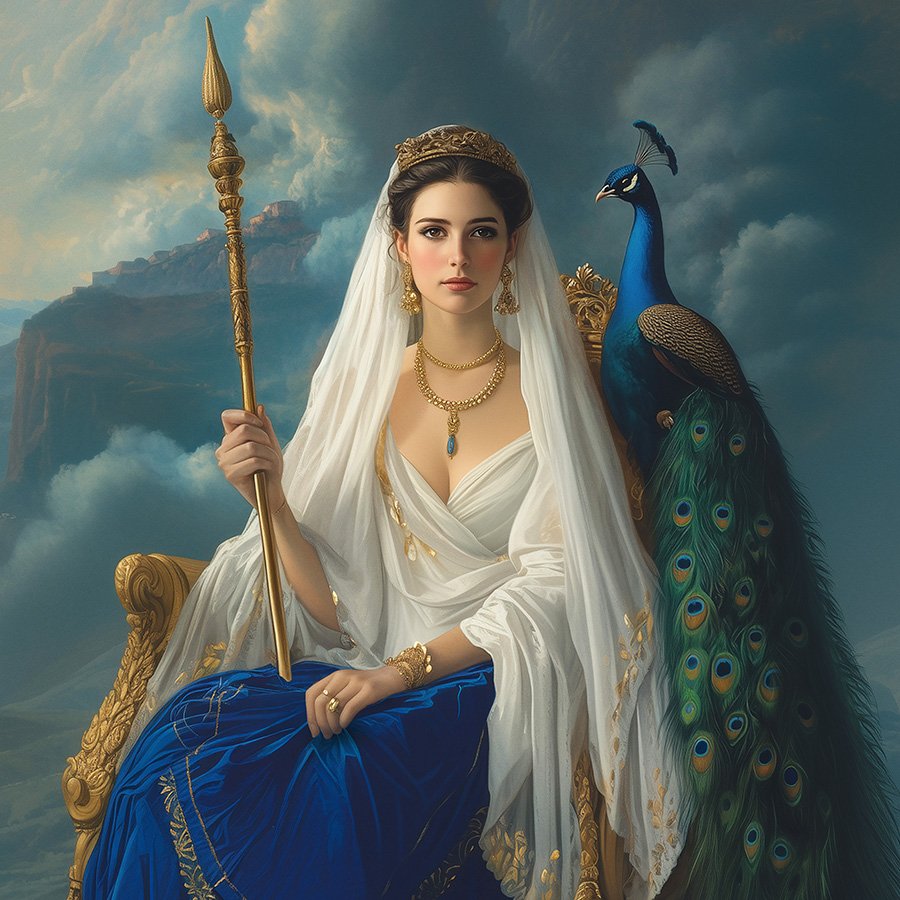Hera
Artemis, the Greek goddess of the hunt, wilderness, childbirth, and virginity, emerges as a formidable and influential figure, with origins in pre-Greek cultures of Asia Minor. As the daughter of Zeus and Leto, she is depicted as a youthful, independent huntress with a bow and arrows, a protector of wild animals, and a guardian of young girls. Her association with the moon and her role in fertility and healing underline her spiritual significance, while her influence extends to modern Pagan and feminist movements, symbolizing female strength and autonomy. Artemis's legacy endures in art, literature, and spiritual practices, reflecting her timeless appeal and enduring relevance.
Cybele, the Great Mother
Cybele, known as the Great Mother or Magna Mater, is a powerful symbol of fertility and the untamed forces of nature in ancient mythology. Originally revered in Phrygia, her worship spread across the Greco-Roman world, where she was celebrated for her connection to the earth’s cycles. Her myths, especially the tragic tale of Attis, underscore themes of rebirth and renewal. Cybele’s enduring legacy reflects humanity’s deep reverence for the nurturing and transformative powers of the natural world.
Tiamat
In ancient Mesopotamian mythology, Tiamat is a formidable deity representing primordial chaos and the cosmic ocean. As the mother of the first gods, she embodies the untamed forces from which the universe emerged. Her epic battle with the god Marduk, resulting in her defeat and the creation of the heavens and earth from her body, symbolizes the triumph of order over chaos. Tiamat's legacy endures as a potent symbol of the dynamic interplay between creation and destruction, influencing art, literature, and modern interpretations of myth.




